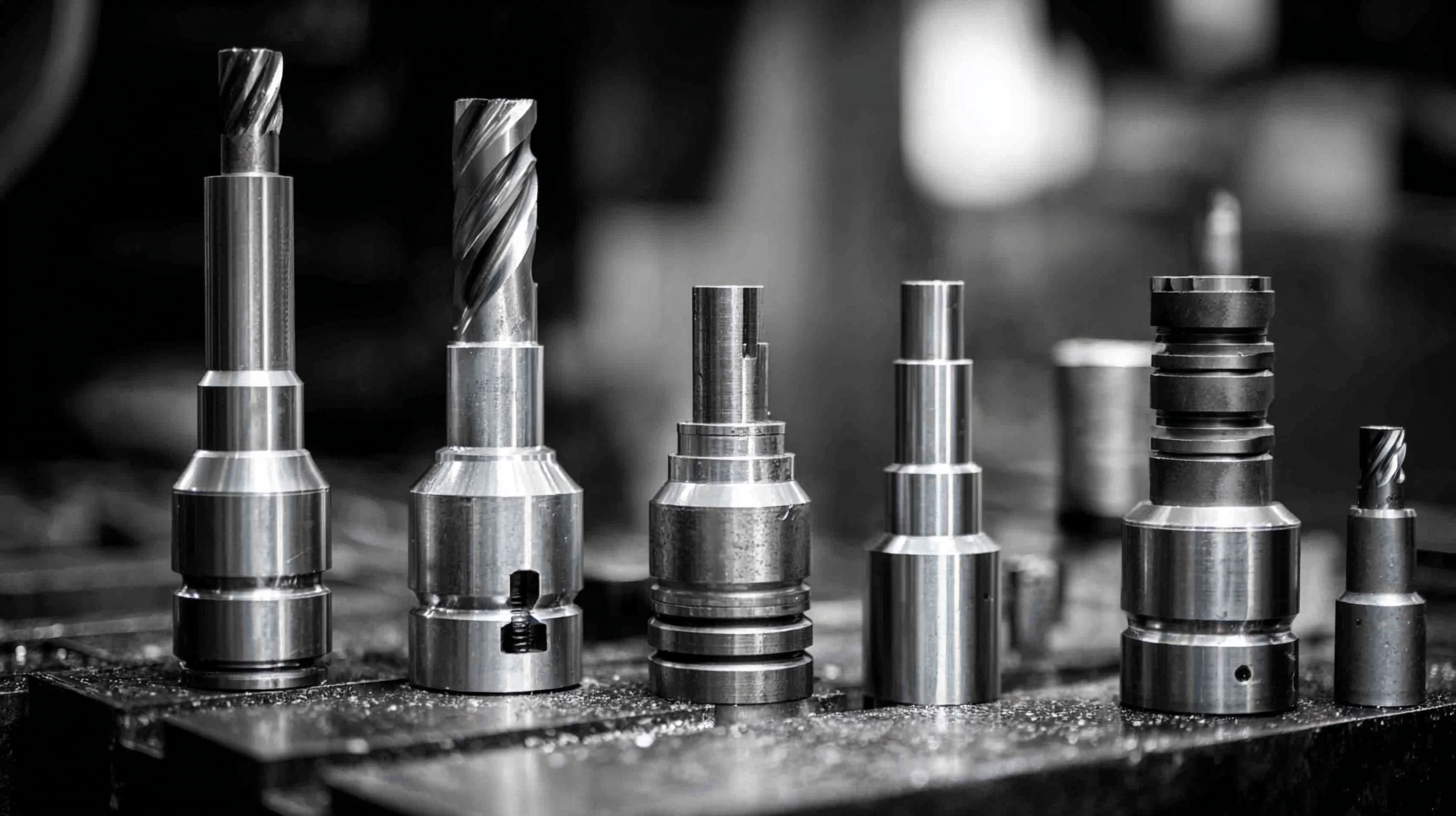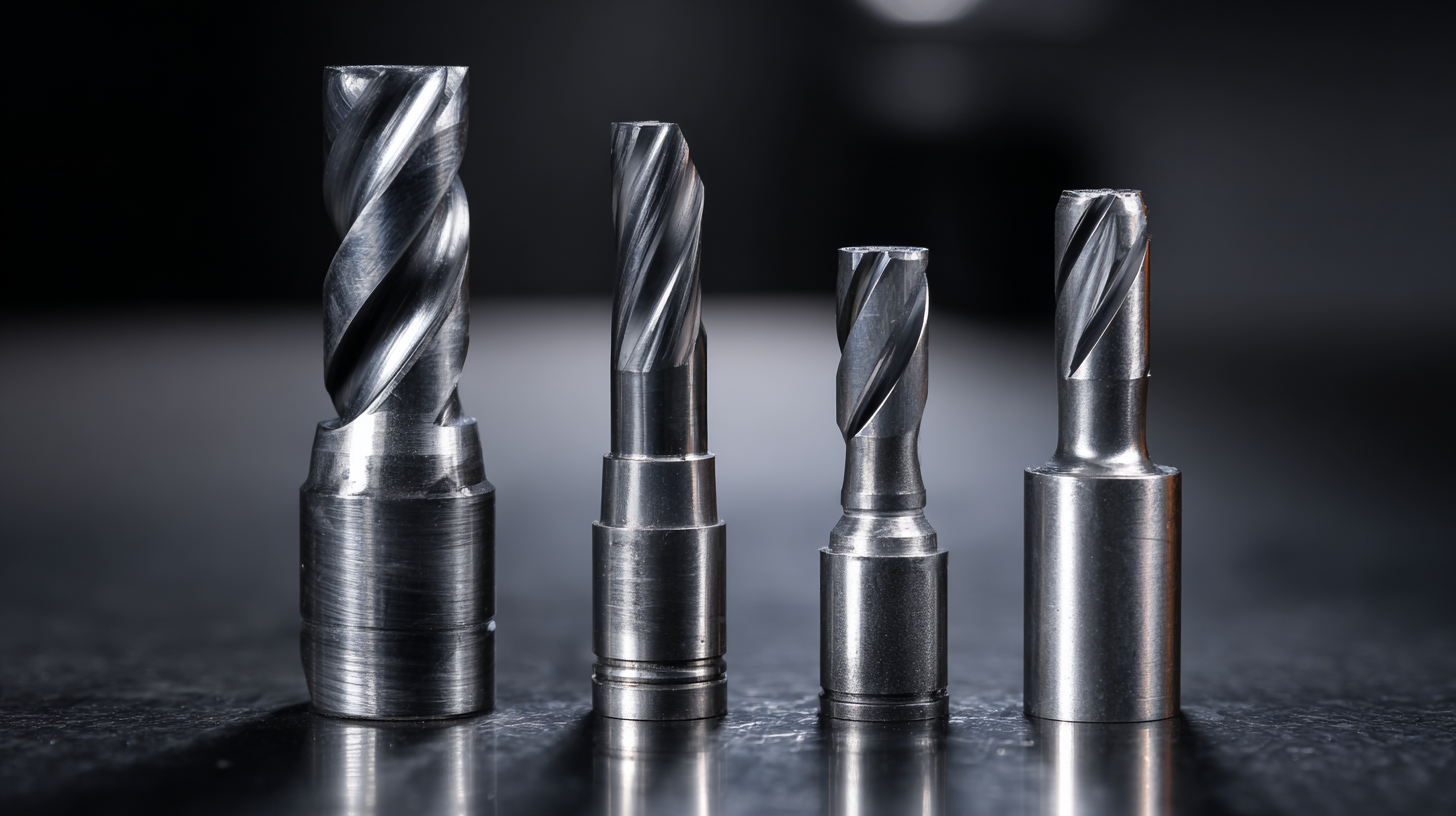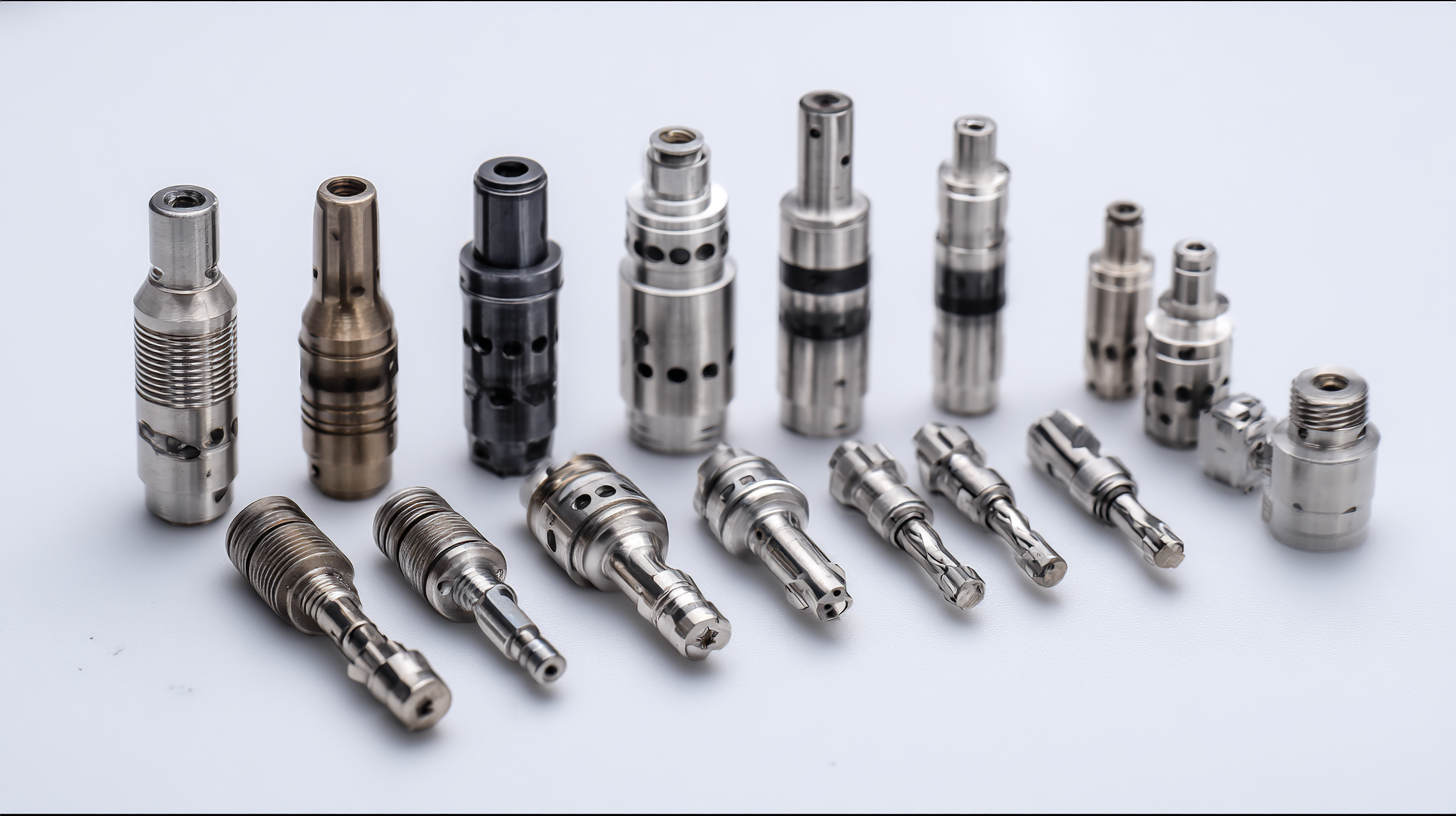
- sales@bjbod.com
- Mon - Sat at 7:00AM to 9:00PM

When it comes to optimizing machining processes, selecting the right CNC bits for aluminum is crucial for achieving superior precision and efficiency. According to a report by Grand View Research, the global CNC machine market is expected to reach USD 117.93 billion by 2028, driven largely by the increasing demand for precision manufacturing. In this context, leveraging high-quality CNC bits is essential for manufacturers aiming to enhance productivity and reduce operational costs. Aluminum, being one of the most widely used metals in various industries due to its lightweight and corrosion-resistant properties, necessitates specialized tooling solutions. By understanding the benefits of various types of CNC bits for aluminum, businesses can make informed decisions that align with global sourcing strategies, ensuring not just performance but also compatibility with their specific fabrication needs.

When selecting CNC bits for aluminum, several key factors play a crucial role in ensuring optimal performance and efficiency. Firstly, the material of the CNC bit is paramount; high-speed steel (HSS) and carbide are popular choices, with carbide offering a longer lifespan and better heat resistance. Additionally, the coating on the bit, such as TiN or TiALN, can significantly enhance its durability and cutting performance by reducing friction and wear, leading to cleaner cuts and extended tool life.
Another critical aspect to consider is the geometry of the CNC bit. Features such as flute design and the number of flutes can impact chip removal and overall cutting efficiency. For aluminum, a bit with fewer flutes but wider flutes is often beneficial, as it allows for efficient chip evacuation and reduces the risk of material binding. Furthermore, the diameter of the bit should align with the specific job requirements, ensuring both precision and power in cutting operations while catering to the desired finish of the aluminum workpiece.

When it comes to selecting the best CNC bits for machining aluminum, understanding the different types and their specific applications is crucial. Aluminum, being a versatile and lightweight material, requires particular tooling to achieve the best results. Two commonly used CNC bits for aluminum are end mills and drill bits. End mills, often with a flat end or ball end, are ideal for creating pockets, contours, and intricate shapes on aluminum surfaces. Their fluted design aids in efficient chip removal, which is essential in preventing material build-up and overheating during operations.
Drill bits, on the other hand, are specialized for creating holes in aluminum. Variants like spiral and twist drill bits can effectively penetrate aluminum, promoting precise hole formation. Additionally, carbide-tipped bits are favored for their durability and heat resistance, making them suitable for high-speed machining. It is also essential to consider the coating on CNC bits, as options like TiN (Titanium Nitride) or AlTiN (Aluminum Titanium Nitride) enhance performance and prolong tool life. Ultimately, choosing the right type of CNC bit is integral to maximizing efficiency and achieving high-quality finishes in your aluminum projects.
| CNC Bit Type | Material Compatibility | Ideal Cutting Speed (RPM) | Coating Type | Application |
|---|---|---|---|---|
| End Mill | Aluminum, Plastics | 6000 - 12000 | TiN | Profiling, Slotting |
| Ball Nose | MDF, Aluminum | 5000 - 10000 | TiAlN | 3D Contouring |
| V-Bit | Wood, Aluminum | 7000 - 12000 | ZrN | Engraving, Signmaking |
| Straight Bit | Aluminum, Composite | 4000 - 8000 | Uncoated | Trenching, Cutting |
| Tapered Bit | Composite, Aluminum | 5000 - 9000 | TiN | Carving, Detail Work |
When sourcing CNC bits for aluminum production globally, understanding quality control standards in Chinese manufacturing is crucial. China is known for its vast manufacturing capabilities, yet the variances in quality control can be significant across different suppliers. Implementing rigorous quality control measures, such as ISO certifications and adherence to specific industry standards, can greatly enhance the reliability of CNC bits. Buyers should prioritize suppliers who demonstrate consistent quality through documented processes and third-party inspections.
Furthermore, the integration of advanced technology in the manufacturing process serves as another indicator of quality. Utilizing automation and smart manufacturing solutions can lead to more precise and consistent production of CNC bits. Companies that invest in this technology are often better equipped to maintain high standards throughout their production cycles. Regular audits and quality checks at each stage of production not only ensure compliance with global export standards but also build trust between manufacturers and buyers, paving the way for long-term partnerships in the global market.
This chart illustrates the performance ratings of various types of CNC bits commonly used for machining aluminum. Performance ratings are based on factors such as cutting efficiency, tool life, and quality of finish. Selecting the right CNC bit type is crucial for optimizing machining operations and ensuring high-quality outcomes in production.
When selecting CNC bits for aluminum in global sourcing, the challenge of balancing cost-effectiveness with quality is paramount. While businesses may be tempted to opt for the cheapest options available, this approach can lead to suboptimal performance and increased waste. It is essential to understand that investing in higher-quality CNC bits can enhance precision and efficiency, ultimately reducing the overall production costs in the long run. The integration of evidence-based solutions can significantly aid manufacturers in making informed decisions, optimizing both cost and quality.
Recent developments in various industries demonstrate that leveraging advanced technologies, such as AI, can help achieve this critical balance. By utilizing data analytics and machine learning, manufacturers can analyze performance metrics of different CNC bits, ensuring they choose the right tools that align with their production standards. Furthermore, taking a holistic approach that considers long-term value rather than just immediate costs can result in improved outcomes. As manufacturers refine their sourcing strategies, finding the sweet spot between cost and quality becomes essential to maintaining competitiveness in the fast-paced global market.
In the realm of global sourcing for CNC bits, fostering robust supplier relationships is paramount. Recent studies indicate that 70% of successful sourcing decisions hinge on the quality of supplier engagement. This is particularly crucial in industries such as aerospace and automotive manufacturing, where precision and reliability are non-negotiable. Establishing long-term partnerships can lead to better pricing, consistent quality, and innovation in products, which is especially important when sourcing specialized CNC bits for aluminum applications.
Furthermore, the current global sourcing landscape is significantly influenced by trade fairs like the Guangzhou Sourcing Fair, which emphasize the importance of face-to-face interactions. Such events provide a platform for buyers and suppliers to align their expectations and build trust. According to industry reports, companies that actively participate in these sourcing fairs see a 30% increase in successful partnerships. Leveraging these relationships not only enhances supply chain efficiencies but also ensures that businesses remain competitive amidst the challenges presented by other emerging markets striving to capture substantial shares in the tooling industry.
